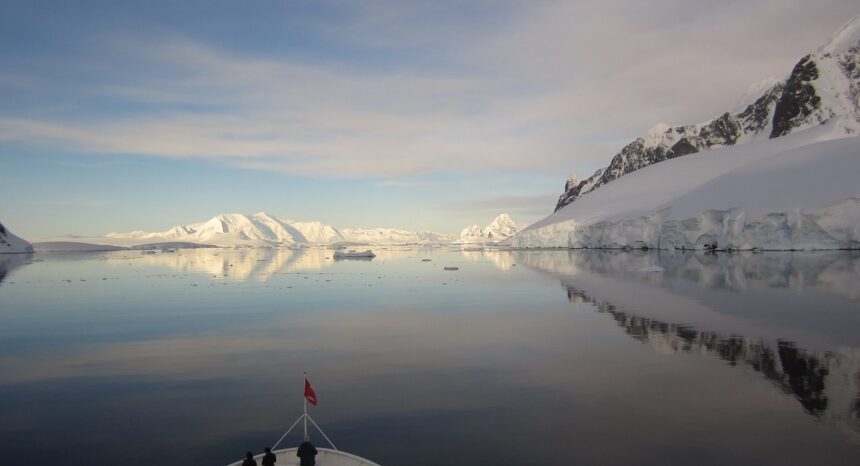Alexis Madrigal, senior editor at The Atlantic, is a prolific journalist who covers a broad range of subjects within the technology, energy and environment beats. He recently took the time to offer some reflections on the research behind his fun and fascinating online piece “The Many Failures and Few Successes of Zany Iceberg Towing Schemes.”
Madrigal uses a multimedia approach and employs a timeline framework to assemble his findings. After posting the story, he pulled back the journalistic curtain and wrote an account detailing the process of his research. Taken together, the article and his post-game reflections on the “sausage-making” show how Web-based research can operate in this new era of digital information abundance. He writes of his research, “I do know that this is something different from what would have been done 5 years ago or 50 years ago.”
Here are Madrigal’s musings, which he kindly gave Journalist’s Resource permission to re-post:
I want to talk a little bit about a story that I really loved writing: “The Many Failures and Few Successes of Zany Iceberg Towing Schemes.”
My initial motivation for writing about iceberg towing is that a Frenchman long involved in the iceberg towing community ran some computer models that showed towing the ice from Antarctica to Africa made sense. A series of credulous headlines followed: Fox News, for example: “Iceberg Harvesting Can End Third World Drought, Scientist Says.”
Now, because I keep an eye on big, crazy schemes in history (I am a lover of wave motors, after all), I knew that I’d seen iceberg towing mentioned for decades and decades. I also knew that “iceberg towing” was a unique phrase that could be pumped through every search engine imaginable to find interesting information. And that’s really what enabled me to write a comprehensive-ish post about the phenomenon in a short amount of time.
Here was my rough order of operations, although given tabbed browsing, many of these things were going on simultaneously:
- Google Books (first with only free books shown, then later with all preview-able books shown.)
- Standard Google search, followed by searches just within .gov sites and then looking only for PDFs.
- The Chronicling America collection, late 1800s and early 1900s newspaper accounts, as well as the other Library of Congress databases, though almost all of them came up empty.
- YouTube.
- Flickr Commons, then Flickr.
- Here, I pinged Twitter, which brought Project Habakkuk and Brewster’s Millions to my attention. Twitter is great for testing what people first think of when they hear some phrase like “iceberg towing.” It lets you play defense against common assumptions.
- Google Scholar, followed by searching in the footnotes of the papers found there, which led to the discovery that there were two major papers put out in 1973, one in the Journal of Glaciology by Weeks and Campbell (later published in modified form in The Bulletin of Atomic Scientists) and another by Rand Corporation researchers J.L. Hult and O.C. Ostrander. Both were gold mines of information.
- By now, many signs pointed to John Isaacs at Scripps Oceanographic Institute as the key figure in the midcentury, so I went to Scripps’ archives and found a bunch of photos of the guy as well as a book about him, which was previewable in Google Books.
- Meanwhile, the Rand report led me to a slough of other sources and filled in the deep history of iceberg towing from South America.
- I decided to follow up on an early hit from Time magazine’s online archives about a conference sponsored by Prince Faisal of Saudi Arabia at Iowa State University (!) about iceberg towing. Turns out, Iowa State maintains a small archival collection about the conferences, which began in 1979 and ran for a few years.
- I did some more extensive searching around “iceberg towing + Labrador Sea” and that yielded a bunch of interesting information about the business and science of towing bergs for the oil industry. Specifically, a 2003 Smithsonian magazine profile surfaced and an excellent document from Grand Banks Iceberg Management from 2007, which pretty much tells you anything you need to know about how to actually get the practice done.
I don’t really know what to call this process other than research, but I do know that this is something different from what would have been done 5 years ago or 50 years ago. Some pieces are the same (digging in footnotes) but others are radically different (Google Books, Google, searching through digitized archival collections, PDF-only searches to find quasi-academic documents).
Now, a key determinant of how easily you can research a topic is the uniqueness of the text that you’re searching. From the second I typed “iceberg towing” into a search text field, I knew I’d hit a rich vein of glorious relevance.
Alexis Madrigal is a senior editor at The Atlantic. He’s the author of Powering the Dream: The History and Promise of Green Technology. Tags: research chat, training.


Expert Commentary